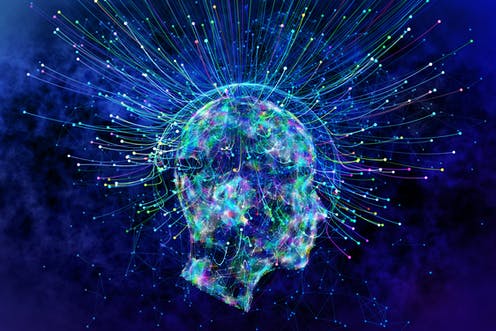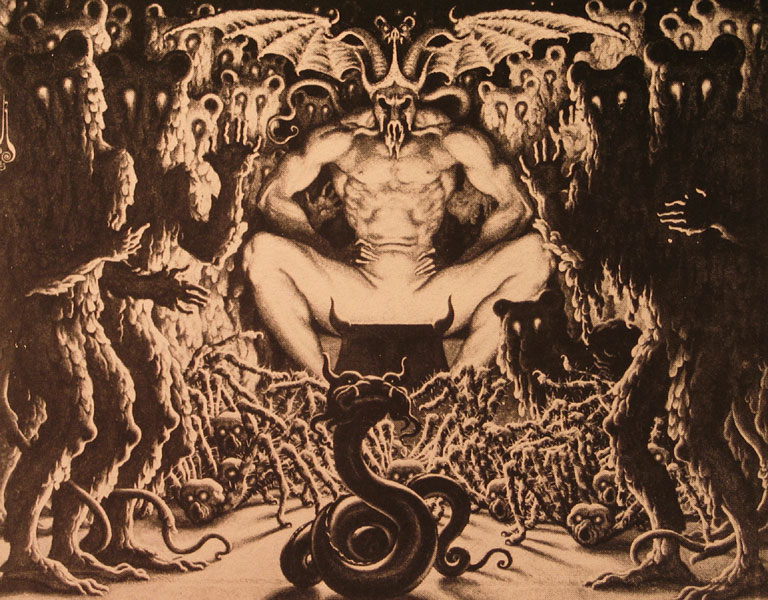“The greatest triumph of the devil in the modern age is convincing people he doesn’t exist.” I don’t know the author of that memorable quote, but it encompasses feel-good New Agers, dogmatic secularists, and rigid rationalists.
All of us in the West are well acquainted with the Christian view of evil and the devil. God created the angels before man, and they were all good. But the highest archangel, Lucifer, led a rebellion against God. He chafed under heavenly rule, because his ego and pride prohibited him from serving anyone or anything but himself. Lucifer was cast out, along with
his followers, and after God made ‘Man,’ Satan and his entire entourage began their fight for the souls of men, women and children on earth.
The Scientific Revolution, and the prematurely named Age of Enlightenment, supplanted this simplistic supernatural story. Prior to World War I, it seemed to many that scientific and technological progress was assured, and that the old shibboleths would be swept away by the victory of reason over the irrational impulses of humans and the childish beliefs of religions.

That faith was shattered by the bloodbath in the trenches of Verdun, although it took Auschwitz and Hiroshima to bring
the faith in reason, science and progress into serious doubt. Even so, believers in the creed of human rationality held on until stateless and state terror combined in the new millennium to produce a perpetual “global war on terror,” and following it, a much more sophisticated rise of a globally interconnected fourth Reich.
Few would deny the existence of evil anymore, as many did until the New Age turned out to be the same old shit and then some. The popular notion in the ‘90’s (even after Rwanda) was that evil could be explained using conventional psychological models. You still hear it sometimes, how evil is an amorphous
phenomenon in human consciousness, an impersonal force that has blind momentum. By subtracting intentionality however, the concept of evil loses all meaning.
The denial these days has to do with not the existence of evil, but its nature, purposes and agents. Those who react to Christian ideology on the subject, and give a conventional psychological explanation for evil, or deny the existence of its intentionality, are spiritually, intellectually and politically surrendering the field to those who serve the very thing they decry from their gilded pulpits.
So let’s tackle the issue head on. Does the devil exist, and if so, what is it? To take even the first step in this inquiry, it’s necessary to confront the primal fear of darkness, the metaphor for evil. After all, if evil, which in essence is collective darkness imbued with intentionality, is supernatural, then the Christian view is as good as any. But if, as I maintain, evil is not supernatural, but a byproduct of the willfully suppressed and neglected ‘dark matter’ in human consciousness (hatred, grudges, jealousy, greed, etc.), then a deeper philosophical and psychological explanation is necessary.
Essentially, if human consciousness has subconsciously generated evil over the millennia, there is no reason to fear it, since it’s man-made. To develop the capacity to meet it, we need to honestly admit and face our own fears and flaws, grudges and sludges on a daily basis.
Human consciousness is not individualistic. Every person is ‘embedded’ in the past, however new our surface scripts. People who think of themselves as entities unto themselves, and live in terms of their superficial identities, images and ideas, are the most frictionless conduits for collective darkness.
Conspiracy theories abound because there is so much darkness, nebulous as well as focused, and there are no adequate philosophies of evil.
Are there masterminds of darkness? Yes, but they are human things operating in human consciousness through willfully blind humans. Viewed accurately, demons are weak, pathetic, miserable hairballs in consciousness, fearful only because of our own unseen and unexamined fears. They prey on people’s weaknesses and flaws, and can possess people who refuse to take responsibility for their own darkness.

The astounding thing is, if one genuinely and continuously acknowledges and learns from one’s own mistakes and failings, one turns the tables on evil, and grows stronger in the ending and understanding of darkness.
The key qualities are humility and doubt.
The devil, by whatever name, has neither. It is as certain of its rightness and righteousness as the marionette Trump and all his evangelicals preaching to the inwardly dead.
There is no “battle between good and evil.” Only evil does battle. Good does not battle evil, though it does stand against it. Good people continually learn from the darkness that’s within all of us. That’s how we will prevail over evil.
Martin LeFevre

